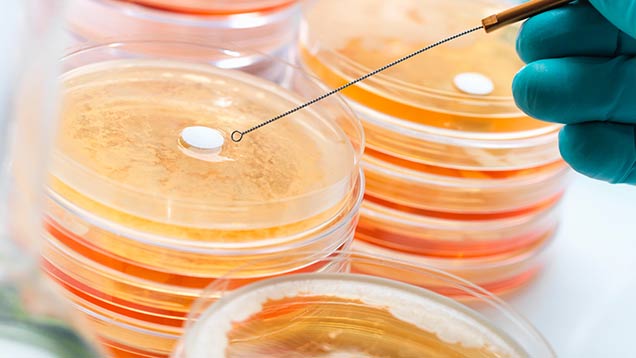MRSA-infected British pork sold on supermarket shelves
 © Cultura/Rex
© Cultura/Rex MRSA has been detected in British pork on our supermarket shelves for the first time in the UK.
The livestock MRSA strain ST398 was discovered in a packet of pork mince and some sausages bought from UK supermarkets as part of a survey of 52 samples of pigmeat.
The strain was found in English reared sick pigs in 2014, but this is the first time it has appeared in supermarkets.
See also: Livestock strain of MRSA found in pigs in England
Sample testing was carried out by scientists at Cambridge University on behalf of the Alliance to Save Our Antibiotics.
MRSA facts
- Livestock-associated MRSA is not the same as MRSA strains associated with hospitals
- The FSA and PHE both advise if meat is handled, prepared and cooked properly, the risk to people is extremely low
- There are no known cases of people contracting MRSA from eating meat in the UK
- The UK also has one of the best surveillance systems in the world to monitor antibiotics use, and tackling this growing resistance to antibiotics is one of the government’s top priorities.
- Defra and the National Pig Association recommend anyone importing pigs to Britain should screen them for infection
- The government is currently reviewing options for increased surveillance of LA-MRSA, which will be proportionate to the very low health risk
Source: Defra
Principal scientific adviser to the alliance, Coilin Nunan, said the infected pork was definitely from MRSA of livestock origin (present in live pigs before slaughter) and not from human contamination.
“This strain first emerged in continental Europe and has continued to spread. Now it has emerged in the UK, the overall amount of MRSA in livestock will continue to increase,” he warned.
Dr Nunan said the research also confirmed all samples positive for ST398 were also resistant to tetracyclines, a widely used antibiotic in pig feed, plus modern cephalosporins, also commonly used.
He believes increasing use of antibiotics in farming is the likeliest explanation for the emergence and spread of livestock MRSA.
“Antibiotics can be used in mass medication even when no animal is diagnosed. We think this is unacceptable.
“The more antibiotics used, the more antibiotic resistance develops and the more ST398 you end up with in livestock.”
The alliance is calling for the industry, government and Veterinary Medicines Directorate to ban routine use of antibiotics in livestock farming.
“We also want the government to test for MRSA to a far greater extent in pigs and poultry. In the UK, human MRSA cases are not tested for the strain so we cannot be certain what the level of risk is, but it will be higher in regular meat consumers,” said Dr Nunan.
An AHDB Pork spokesman said: “Livestock-associate MRSA causes little to no disease in livestock animals and, to date, only two cases of (LA)-MRSA have been recorded in pigs in the UK. We are aware it is more prevalent in a number of countries in the EU and across the globe. This is not an unexpected finding bearing in mind the movement of livestock and goods across Europe.”
AHDB Pork advised livestock keepers to observe good husbandry, hygiene and biosecurity practices, including adherence to principles of responsible antibiotic use.
